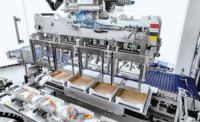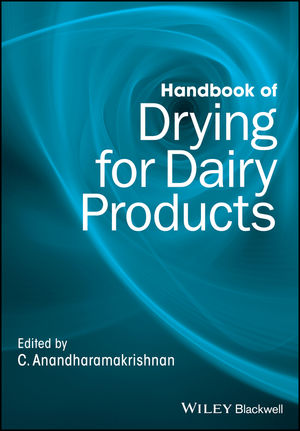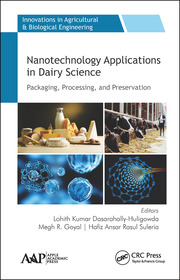Yogurt packaging
PET sheet is a good choice for FSS of yogurt multipacks
PET sheet is resilient enough to prevent it from cracking, and it has lower permeability for oxygen, which increases the shelf life of yogurt.

By Octal
It’s difficult to go a day without seeing or hearing about the health advantages of consuming yogurt. The yogurt industry has been experiencing steady growth, as it diversifies its offering and enters new regions with lower cost production. As part of this industry-wide growth, many manufacturers are pursuing the best packaging option for production of the product.
One such option contributing to progress in this market category is form, fill and seal (FFS). The main reason for the success: FSS is a fairly simple and highly efficient process. The packaging material is formed into a package, then filled with the food product, then sealed.
 There are two typically types of FFS processes used today: vertical and horizontal. Vertical is typically used for flexible plastic packaging. During this production process a plastic film is fed vertically through a machine. The horizontal process, as its name suggests, involves having rigid sheet fed into a machine horizontally to form a rigid plastic package.
There are two typically types of FFS processes used today: vertical and horizontal. Vertical is typically used for flexible plastic packaging. During this production process a plastic film is fed vertically through a machine. The horizontal process, as its name suggests, involves having rigid sheet fed into a machine horizontally to form a rigid plastic package.
“Manufacturers deploying FSS for the packaging of yogurt have been able to maintain the necessary high production rates, reduce their processing steps, and decrease their need for manual labor,” stated William J. Barenberg, Jr., Octal’s COO. “The FSS process also minimizes the risk of food contamination due to reduced contact with equipment and plant personnel. All of these benefits combined have aided manufacturers to yield an overall cost savings compared to other yogurt packaging options.”
Additionally, FSS packaging is especially well suited to producing multipacks. Multipacks can eliminate the need for secondary materials such as cardboard or shrink sleeves, facilitating additional cost savings. However, a critical component for additional benefits and cost reductions relies on the material selection for the package.
The material options for FSS packaging are determined by many factors including: product, filling temperature, bacteria sensitivity, sterilization method, storage conditions, desired shelf- life and package design. For the sake of this article we will just focus on the advantages of the material PET sheet for the yogurt multipack.
PET sheet has many distinct characteristics that give it an edge over other polymers, with one of its principal advantages being mechanical robustness. PET sheet combines rigidity with toughness. Yet, the package is resilient enough to prevent it from cracking (an issue with styrene-based plastics), which ensures good performance during transportation. Plus, PET sheet has lower permeability for oxygen than other commonly used polymers, which increases the shelf life of yogurt.
Nonetheless, many packaging manufacturers have discovered if the PET sheet material is not manufactured with concern for the upmost quality, they could still find it somewhat difficult to produce the best yogurt container possible. Some producers have found with the right equipment along with the use of Octal DPET’s sheet, they have been able to consistently produce a high quality yogurt package.
 Yogurt packaging systems are some of the most demanding in the world. Consistency and machinability for uptime and productivity is a key performance indicator. Octal DPET direct-to-sheet manufacturing system is designed to provide the kind of consistency it takes to realize the absolute maximum from FFS lines.
Yogurt packaging systems are some of the most demanding in the world. Consistency and machinability for uptime and productivity is a key performance indicator. Octal DPET direct-to-sheet manufacturing system is designed to provide the kind of consistency it takes to realize the absolute maximum from FFS lines.
With a typically observed gauge variation of +/- 2 to 3 microns, DPET enables FFS operations to run at highly consistent rates day after day. Sealing quality is also optimized with DPET’s highly planer surface topography. Additionally, DPET cuts easier than traditional PET sheets, meaning more uniform cutting, and knives that last longer between sharpening and replacement. DPET also delivers a smooth and glossy surface that is perfect for detailed printing designs and process printing or label application, yielding attractive packs with enhanced shelf presence.
“As Octal establishes itself as the market leader in PET sheet, more and more yogurt producers are finding that DPET’s physical properties translate directly into advantages for both the yogurt manufacturer,” Barenberg said. “Now, they can now produce a high quality yogurt package, along with reducing cost by ordering a thinner sheet. In addition, yogurt manufacture can gain additional business because DPET’s meets many new sustainability requirements.”
For additional information on Octal’s DPET for yogurt packaging visit www.octal.com.
Looking for a reprint of this article?
From high-res PDFs to custom plaques, order your copy today!








